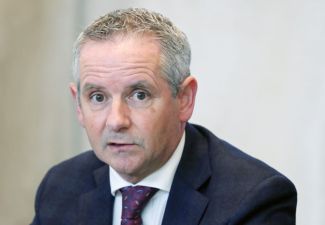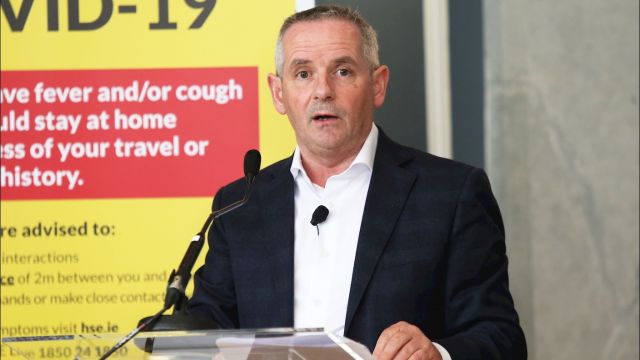Hospitals are making “every effort” to protect non-Covid services, despite being “challenged” by the rise in cases of the virus, the HSE chief has said.
Paul Reid said that every person with Covid-19 who is in hospital has a “significant and disproportionate impact” on hospitals because of the precautions that they have to take.
He said the health service was working hard to reduce the impact on other services as the number of cases continued to rise.
“Our hospitals continue to be challenged and are continuously making every effort to protect our non-Covid services,” he said.
There were 305 confirmed cases of Covid-19 in hospitals on Thursday morning. These included 35 people with the virus in ICU.
Mr Reid told a HSE briefing that 111,688 Covid-19 tests were carried out over the last seven days, of which 8,146 were positive.
It equates to a positivity rate of 7.3 per cent, which is up from 5.6 per cent on the previous week.
Hospital admissions
The latest HSE data showed the average number of new cases over the past seven days was 1,166 per day, up 57 per cent on the previous week.
The seven-day average is now 2.5 times higher than it was two weeks ago.
Mr Reid said the 14-day incidence rate is highest among 15 to 24-year-olds, at 631 per 100,000 population, up 60 per cent on last week and “more than double the average rate”.
The rate still remains the lowest among children aged 0-14.
He said the health service was now seeing admissions to hospital with Covid-19 across the country, not just in Dublin.
Mr Reid added the hospitals with the highest number of Covid-19 patients were now in Cavan General Hospital, Cork University Hospital, Tallaght University Hospital, Beaumont Hospital and Letterkenny University Hospital.
Mr Reid acknowledged it was a difficult day for people as the country entered into Level 5 restrictions.
But he urged the public to embrace the public health guidelines introduced on Thursday despite it being “difficult” to do so.
“It’s now in everybody’s interests, in all of our interests to collectively work together to really turn around these trends,” he said.
He added that he firmly believed we would see the trend coming down soon if everyone adhered to the new measures.
That’s a function of where the virus is in the community, it’s a function of high levels of transmission in the community and the high levels of contacts.
The HSE came under increasing pressure in recent days after it emerged that thousands of close contacts of positive coronavirus cases from last weekend would not be contacted by the HSE’s contact tracing team.
About 2,000 people who tested positive for Covid-19 were told they would have to identity and inform their close contacts that they should arrange to get a test.
Mr Reid apologised for the breakdown in the system and said the health service did not have enough people to “cope” with an “exponential” increase in cases.

In the first three weeks of October, he said, the HSE had made 76,000 calls to contacts.
“Over a six-week period, it’s moved from over 8,000 a week to now last week to almost 28,000 calls we’re having to make.
“That’s a function of where the virus is in the community, it’s a function of high levels of transmission in the community and the high levels of contacts.”
He said the HSE was trying to combat the rising numbers by recruiting more staff, adding there were now 500 people working in contact tracing and between 65 and 75 new staff were starting each week.







